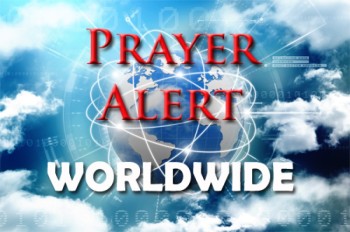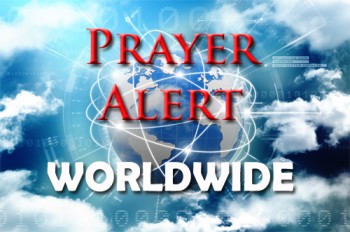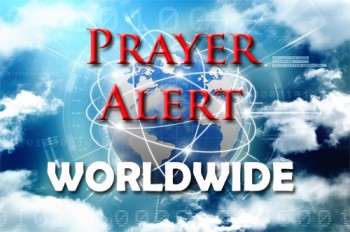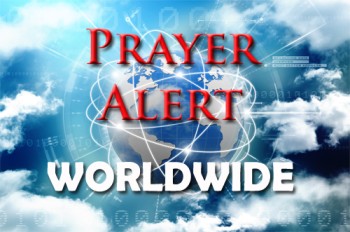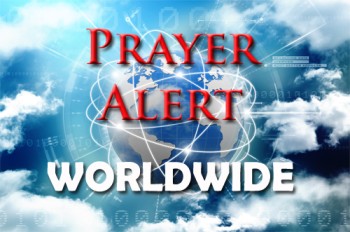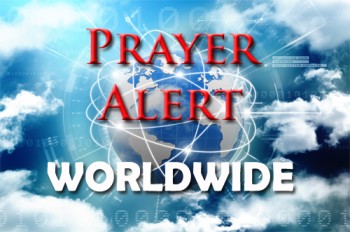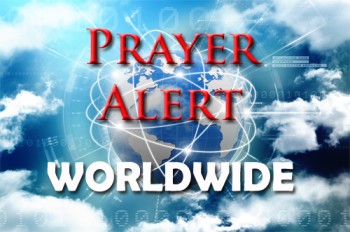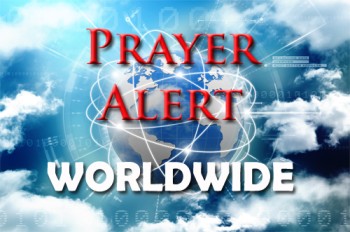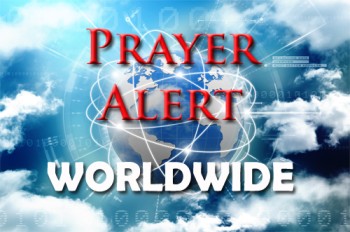Displaying items by tag: Latin America
Peru declares 30-day state of emergency in Lima to tackle rising crime
Peruvian President Jose Jeri has declared a 30-day state of emergency in the capital, Lima, and the neighboring province of Callao to confront rising crime and growing public unrest. The measure, approved by the Council of Ministers, allows the armed forces to work alongside police in maintaining order and security. In a televised address, Jeri said the government was “moving from defense to offense in the fight against crime” to restore peace and public trust. The decision follows violent protests last week that left one person dead and over 100 injured, marking the first major challenge to Jeri’s new administration. Sworn in earlier this month after the ouster of Dina Boluarte, the president has made law and order his top priority. However, analysts warn that repeated emergency declarations — including similar measures under Boluarte — have failed to address the root causes of Peru’s insecurity. Critics say lasting reform requires judicial and police accountability, not just military deployment.
Venezuela closes embassy in Norway following the Nobel Peace Prize award
Venezuela has announced it will close its embassies in Norway and Australia, days after opposition leader María Corina Machado was awarded the Nobel Peace Prize. The move, confirmed by Norway’s foreign ministry, came without explanation but follows years of diplomatic tension between Nicolás Maduro’s government and Western nations. Norway expressed regret at the decision, emphasising that the Nobel committee operates independently of its government. Machado, who remains in hiding, received the Peace Prize for her “extraordinary examples of civilian courage’. She dedicated the award to Donald Trump and the ‘suffering people of Venezuela’. Barred from last year’s disputed election, she remains a powerful symbol of resistance to Maduro’s rule. The closures underscore Venezuela’s shifting alliances amid growing isolation from democratic nations. For the White House’s reaction to the Peace Prize award, see
Mexico: deaths and devastation after torrential rains
At least 64 people have died and 65 remain missing after torrential rains and floods devastated five Mexican states. The deluge, triggered by remnants of Hurricane Priscilla and Tropical Rainstorm Raymond, caused rivers to burst their banks and unleashed deadly landslides which wiped out entire communities. President Claudia Sheinbaum said that around 100,000 homes were damaged, and some had ‘practically disappeared’. She added that there had not been any meteorological signs ‘which could have indicated that the rain was going to be of this magnitude’. Thousands of soldiers and emergency responders have been deployed to deliver food, water, and medical aid, while power crews are working to restore electricity to hundreds of thousands affected. Officials said the rainfall, exceeding 280mm in some areas, was impossible to predict at such magnitude. As survivors search for missing loved ones, grief and exhaustion hang over devastated regions.
Brazil: Lula talks with Trump about tariffs
President Luiz Inácio Lula da Silva has urged Donald Trump to remove the 40% tariff recently imposed on Brazilian imports. The two leaders held a thirty-minute phone conversation, exchanging direct contact numbers and discussing trade and economic cooperation. Lula reiterated his invitation for Trump to attend the upcoming climate summit in Belém and said that Brazil remains one of the few G20 nations with which the United States enjoys a trade surplus. Trump described the discussion as positive, noting plans for future meetings in both countries. The tariffs, added to an earlier 10% duty, were justified by the Trump administration as a response to Brazil’s internal political instability following former president Jair Bolsonaro’s conviction for attempting a coup. Despite tensions, the leaders’ dialogue signals an effort to preserve economic ties and foster mutual understanding between the Western Hemisphere’s two largest democracies.
Colombia: president condemns US airstrikes on alleged drug-smuggling boats
Colombian president Gustavo Petro has condemned recent US airstrikes on alleged drug-smuggling boats in the Caribbean, calling them an ‘act of tyranny’ and urging criminal proceedings against US officials if Colombians were killed. The strikes, authorised by Donald Trump and reportedly responsible for 17 deaths this month, target vessels suspected of trafficking fentanyl and other narcotics, especially near Venezuela, Colombia’s neighbour. Legal experts and UN officials have questioned the legality of these actions, describing them as possible extrajudicial executions. Petro argued that deadly force is unnecessary, citing Colombia’s long history of cooperative drug interdictions without fatalities. He stressed that the principle of proportionality is violated ‘if you use anything more than a pistol’. The White House maintains that Trump will use ‘every element of American power’ to combat narcotics. He has designated several drug-trafficking organisations and criminal groups in Mexico and elsewhere in Latin America as terrorist organisations, and the US military has bolstered its forces in the southern Caribbean over the last two months.
Brazil: convicted president Bolsonaro rushed to hospital
Former president Jair Bolsonaro was rushed to a Brasília hospital after experiencing severe hiccups, vomiting, and low blood pressure while under house arrest, his son announced. Bolsonaro, who has endured ongoing intestinal problems and six surgeries following a 2018 stabbing, had visited the same hospital days earlier for skin lesion biopsies. On 11 September Brazil’s supreme court sentenced him to 27 years and three months in prison for plotting a coup after losing the 2022 election to Luiz Inácio Lula da Silva; he has not yet been imprisoned because of appeals and procedural delays. In a separate case, a federal court has fined him one million reais (£138,000) for racist remarks made in 2021. Bolsonaro has denied wrongdoing, claiming to be the victim of political persecution, and Donald Trump has also called the trial a ‘witch-hunt’, but Lula has spoken of a ‘historic decision’ which safeguards Brazil’s democratic principles. Public opinion remains sharply divided over his sentence and political future.
Argentina: financial woes after Milei’s party loses badly in local elections
Argentina’s political and financial turbulence deepened after Javier Milei’s party suffered a heavy defeat to the Peronist opposition in key local elections. The peso tumbled to a historic low, sliding nearly 5 percent against the US dollar, while stocks and international bonds plunged sharply, sparking concerns over Argentina’s economic stability. Milei’s reform agenda, once hailed as a potential turning point, now faces major obstacles as midterm elections loom on 26 October. Markets fear the government may burn through reserves to defend the peso, undermining its IMF-backed programme and raising the risk of default. The Peronists’ wider-than-expected 13-point victory in Buenos Aires province highlighted Milei’s growing political challenges. These are compounded by corruption allegations involving his sister. Investor confidence, already shaken, has deteriorated further, with bonds and equities suffering their steepest losses since Argentina’s 2020 restructuring.
Peru: Indonesian diplomat assassinated
Peru is reeling after the shocking assassination of Indonesian diplomat Zetro Leonardo Purba, who was fatally shot three times in Lima. The government expressed deep condolences and condemned the killing as a ‘heinous act’, pledging full cooperation with Indonesian authorities and enhanced protection for embassy staff. While the national police chief suggested the incident might have been a targeted attack by foreign assailants, Indonesian officials expressed doubt, noting Purba had not received prior threats. Some attributed the tragedy to rising violent crime in the capital, where homicides and extortion have surged under president Dina Boluarte. Purba, who had been serving in Lima for only five months, leaves behind a wife and children. His death comes just weeks after Peru and Indonesia marked fifty years of diplomatic relations with a free-trade agreement.
Ecuador: closure of controversial mine splits community
The story of Rio Blanco reveals both the promises and perils of large-scale mining projects in vulnerable communities. Initially welcomed by locals with hopes of jobs and development, a Canadian mining project quickly soured amid broken promises, environmental damage, and land disputes. Successive companies failed to deliver on social commitments while accusations mounted of arsenic contamination, drying wetlands, and loss of farmland. Tensions escalated, splitting the community between those desperate for employment and those fighting to protect land and water. Protests, blockades, and violence culminated in a court ruling suspending operations due to the government’s failure to consult Indigenous communities. Yet conflict has persisted, with violence against activists and threats of illegal mining. Today, the people of Rio Blanco struggle with fractured trust, environmental scars, and ongoing uncertainty, as they seek sustainable alternatives and a future free from exploitation.
Venezuela: Maduro announces mass mobilisation in response to US threats
Nicolás Maduro has announced the mobilisation of more than four million civilian militia fighters, responding to what he describes as escalating threats from the USA. He pledged to arm and activate militias across the country, reinforcing national sovereignty against US actions. His remarks followed the Trump administration’s decision to double its bounty for his arrest to $50 million. While US officials accuse Maduro of leading a cocaine smuggling network known as the Cartel de los Soles, no direct evidence has been publicly presented. Venezuela’s militia system, created under former president Hugo Chávez, claims millions of members, though analysts question the figures. Meanwhile, the US military has dispatched three destroyers to the southern Caribbean as part of an expanded campaign against drug cartels in Latin America. The standoff reflects years of strained relations between Caracas and Washington, marked by sanctions, contested elections, and allegations of corruption.
